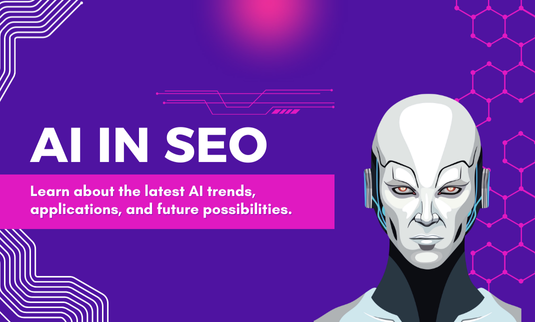As generative AI tools increasingly become central to content creation, mastering how to write effectively for these AI-powered search engines is essential for any successful content strategy. Generative search engines blend traditional keyword-based search methods with advanced AI-driven content creation, fundamentally changing user interactions with online information. To remain competitive, content creators must quickly adjust their approaches to align with the unique characteristics of these evolving AI search experiences.
The Shift from Keywords to User Intent
One of the most significant changes in this new landscape is the transition from keyword-centric optimization toward content that satisfies user intent in a conversational, natural tone. Generative search engines excel at synthesizing information from multiple sources to provide direct, contextually relevant answers. This requires writers to go beyond simple keyword placement and instead focus on delivering clear, authoritative, and well-structured content that anticipates the user’s broader informational needs. Including answers to possible follow-up questions within the same article creates a fuller, more useful experience, increasing the likelihood your content will be favored by AI-driven search systems.
Enhancing Readability for Both Humans and Machines
In the age of AI search, readability holds even greater importance. Using short, focused paragraphs, descriptive subheadings, and bullet points improves the reading experience for humans and facilitates machine comprehension. AI algorithms rely on well-organized hierarchies to extract relevant snippets and generate voice search responses. Writing in an engaging but straightforward style that mimics natural human conversation aligns closely with how AI interprets and uses content, improving its chances of being featured prominently.
Semantic Richness Over Keyword Stuffing
Modern generative search engines prioritize semantic relevance over exact keyword matches. It’s vital to incorporate keywords thoughtfully and diversify the language with synonyms, related terms, and semantic variations. Search AI evaluates topical authority based on the overall content context rather than isolated keywords. This nuanced approach supports better performance in voice and visual search environments, where conversational phrasing and multimedia integration increasingly shape search outcomes.
Diversification: Adapting Content Across Formats
To future-proof your content strategy, diversifying your content format is critical. The rise of short-form video, podcasts, and audio content means your written material should be flexible enough for repurposing. For instance, blog posts can become scripts for podcasts or short video clips suitable for social media platforms. Leveraging multiple content channels ensures wider reach and engagement, especially as generative AI-powered tools develop across different media.
Staying Ahead Through Continuous Research and Refinement
With generative AI evolving rapidly, continuous learning and adaptability are key. Search engines’ AI models are constantly updated based on user feedback and interaction patterns. Content creators should stay informed about emerging search trends, experiment with varied writing styles, and regularly update old content to maintain relevance and competitive advantage. AI-powered writing assistants can streamline research and optimize keyword use, but maintaining a human touch is critical for preserving authenticity and creativity.
Leveraging AI Tools Without Losing the Human Element
AI tools offer tremendous help by automating keyword research, content structure, and performance tracking. They analyze vast amounts of data quickly, revealing fresh insights into user behavior and emerging search intent patterns. However, these tools serve best as a complement rather than a replacement for human judgment. Balancing data-driven precision with creative storytelling ensures your content remains engaging and retains its unique voice, a factor Google’s latest AI search algorithms highly value.
Preparing for Zero-Click and AI-Driven Search Experiences
Another key trend involves the rise of zero-click searches, where users get their answers directly on search results pages without clicking into a website. AI-powered “overviews” and direct responses reduce traditional traffic driven by organic search alone. To compete effectively, your content should aim to be the source that AI engines select for concise, factual responses. This requires factual accuracy, unique insights, and comprehensive coverage of the topic.
Conclusion: Embrace a User-First, AI-Optimized Approach
In today’s AI-enhanced search landscape, successful content creation means producing user-centric, semantically rich, and well-structured content that reads naturally and adapts to multiple formats. Embracing continuous optimization and leveraging AI-powered search engine insights while preserving human authenticity will help content creators thrive. By understanding how generative AI engines function and adjusting strategies accordingly, businesses and creators can secure their place at the forefront of the evolving digital future.
This new era offers exciting opportunities for those who master the balance: combining the precision and efficiency of AI with the creativity and empathy only humans can provide.
FAQs
1) What is an AI-powered search engine?
A: An AI-powered search engine uses natural language processing and generative AI to understand user intent and deliver contextually accurate answers, rather than relying only on keyword matches.
2) How is optimizing for AI search different from traditional SEO?
A: Traditional SEO emphasized keywords and backlinks, while AI-powered search engine optimization focuses on intent, semantic context, structured content, and continuous content updates.
3) Do I need AI tools to optimize my content?
A: AI tools can speed up research, keyword discovery, and structuring, but human insights are still essential for authenticity, accuracy, and brand voice.
4) What type of content performs best for AI-driven search?
A: Diversified formats—blogs, videos, podcasts, and visual assets—perform well, as they give the AI-powered search engine multiple ways to interpret and surface your content.
5) How often should I update my content to stay relevant?
A: Review and refresh your content every 6–12 months, or sooner if trends, data, or industry best practices change rapidly.
6) How can I measure success with AI search optimization?
A: Track visibility in AI overviews/snippets, organic traffic from natural queries, engagement metrics like time on page, and conversions to evaluate impact.




Recent Comments